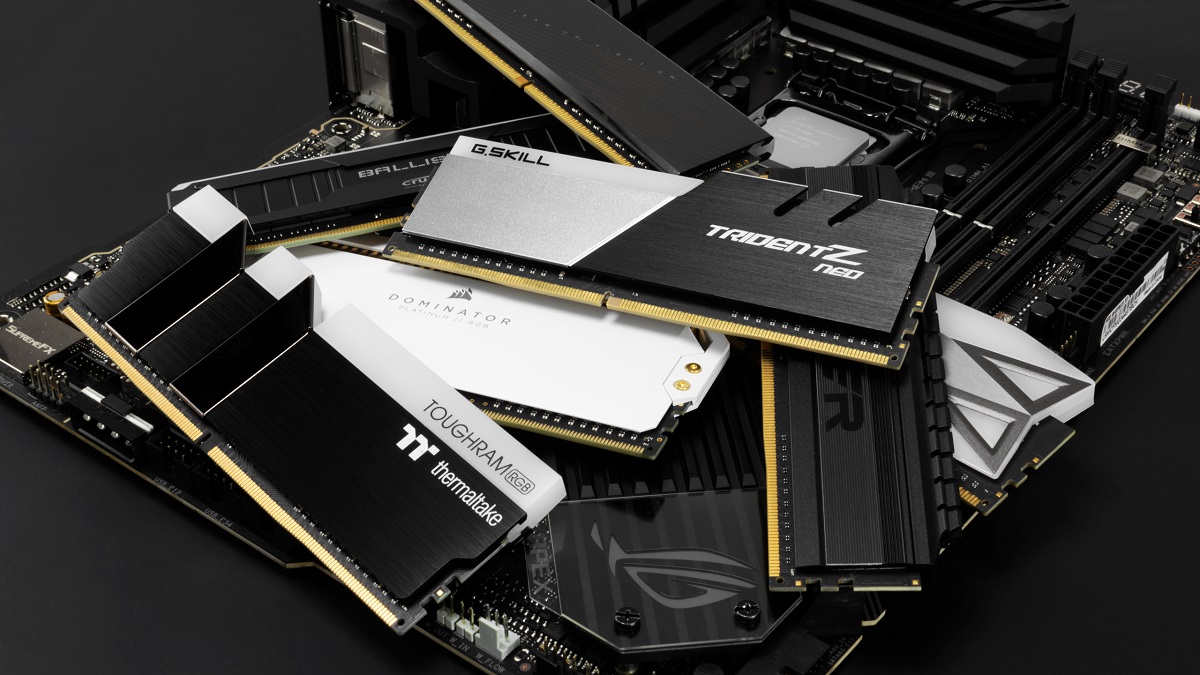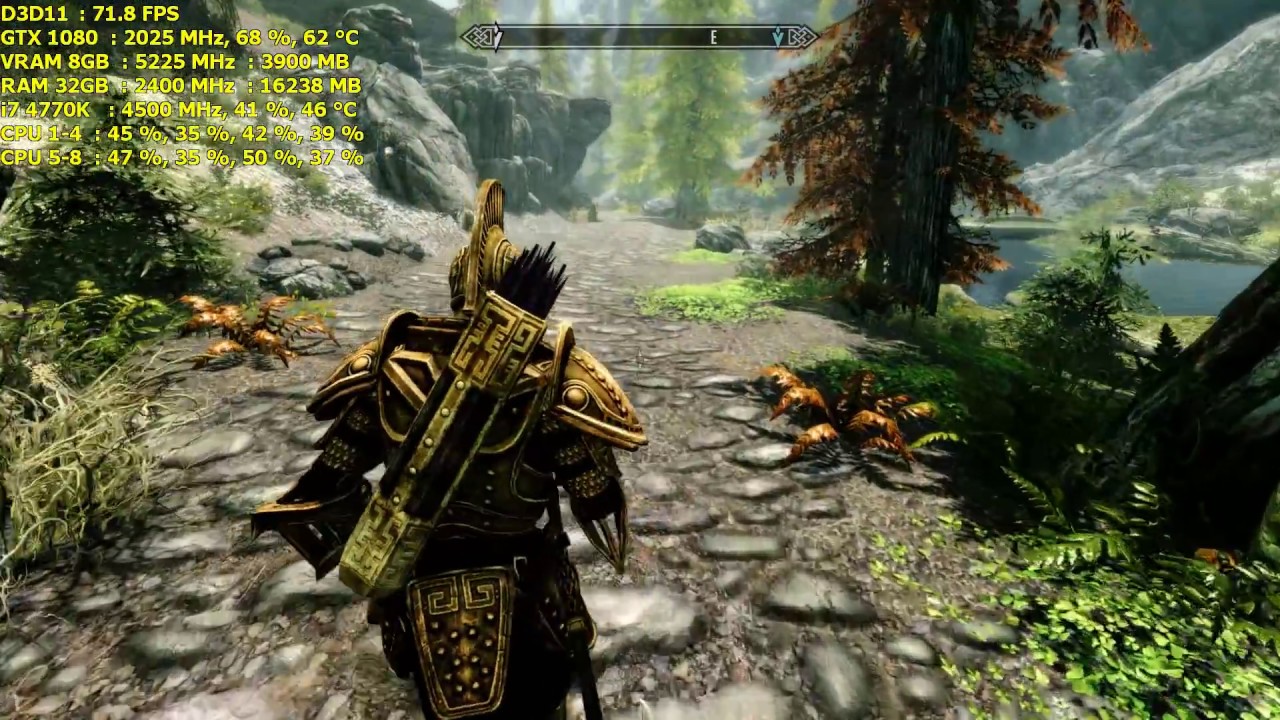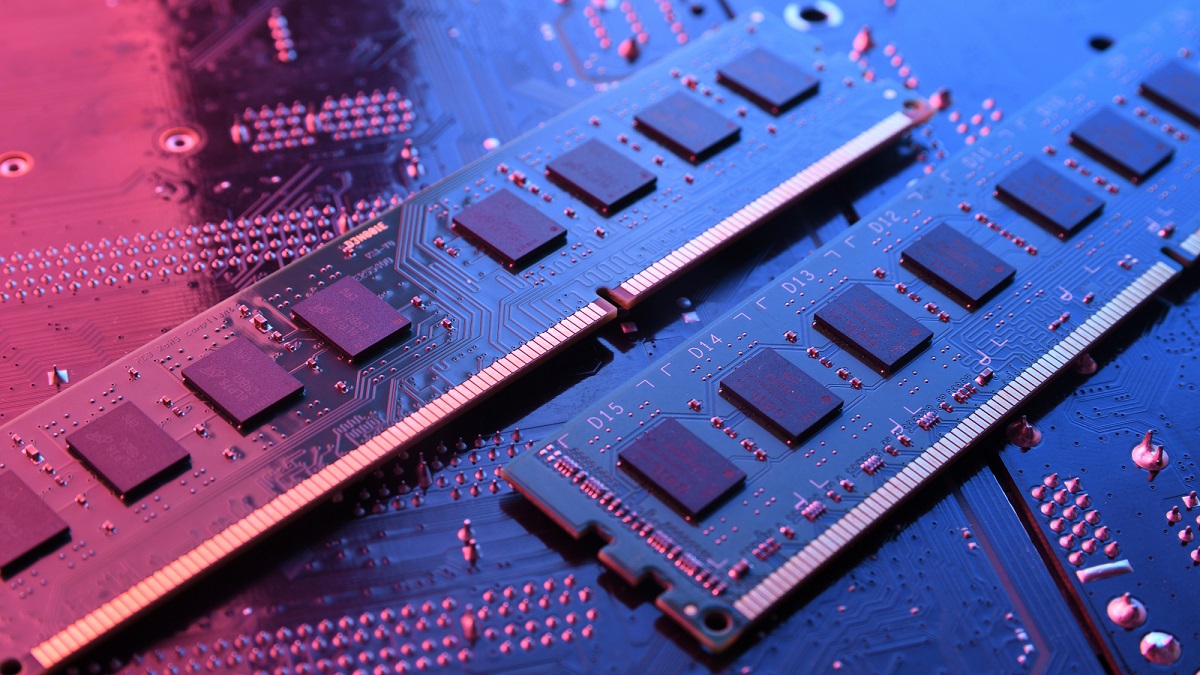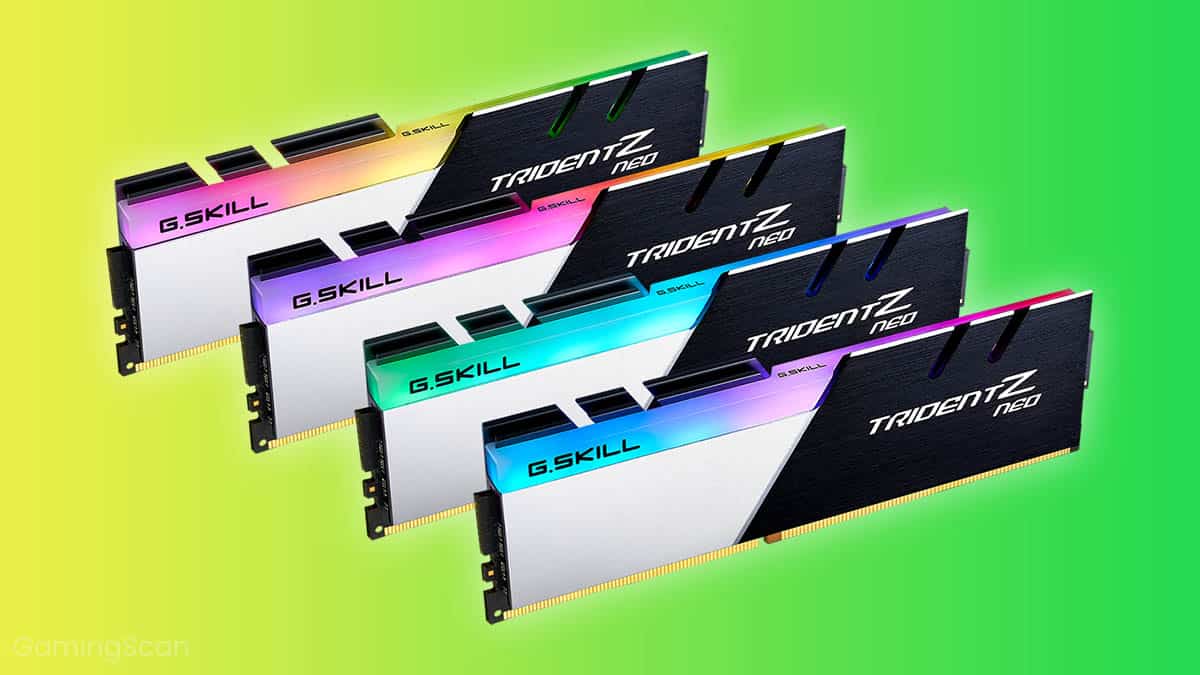Introduction
Welcome to the exciting world of gaming! Whether you are a casual gamer or a hardcore enthusiast, having the right hardware is crucial for an exceptional gaming experience. One component that often gets overlooked but plays a significant role in gaming performance is RAM, also known as Random Access Memory. In this article, we’ll explore why RAM is important for gaming and how to choose the right RAM for your gaming PC.
RAM acts as a temporary storage space for data that your computer needs to access quickly. It allows your system to store and retrieve data rapidly, ensuring smooth and seamless gameplay. Without sufficient and capable RAM, your games may suffer from lag, stuttering, and other performance issues.
The demanding nature of modern games, with their stunning graphics, complex physics, and immersive worlds, requires a robust and efficient system. Your gaming PC needs to handle a multitude of tasks simultaneously, such as rendering high-resolution textures, loading game assets, and running background processes. This is where having adequate RAM becomes crucial, as it directly impacts your system’s ability to handle these tasks efficiently.
Having sufficient RAM allows your computer to load and store all the necessary game data in its memory, reducing the need for constant access to slower storage devices like hard drives or solid-state drives (SSDs). This results in faster load times and smoother gameplay, as your system can quickly access the required data without any bottlenecks.
Additionally, RAM also plays a vital role in multitasking while gaming. If you like to have multiple applications running in the background, such as voice chat programs, video streaming, or music players, a higher amount of RAM is essential. It ensures that these applications can run smoothly alongside your game without impacting performance.
Now that we understand the importance of RAM in gaming, the next question that arises is how much RAM should you have for an optimal gaming experience? Let’s delve further into this topic in the following section.
Why RAM is important for gaming
RAM, or Random Access Memory, is a vital component in a gaming PC. It plays a crucial role in ensuring smooth and seamless gameplay. Here are some key reasons why RAM is important for gaming:
- Loading Times: RAM allows your computer to load game data quickly. When you launch a game, it needs to load various assets such as textures, models, and audio files. With sufficient RAM, your system can store this data temporarily, reducing the need to access slower storage devices like hard drives or solid-state drives (SSDs). This results in significantly faster loading times, getting you into the game quicker.
- Performance and Stability: RAM affects the performance and stability of your games. Insufficient RAM can lead to lag, stuttering, and frame rate drops. When your system runs out of available RAM, it starts using the hard drive as virtual memory, which is much slower. This can cause gameplay issues and make your gaming experience less enjoyable. Having enough RAM ensures that your games run smoothly and without any hiccups.
- Multi-tasking: Gaming often involves running multiple applications simultaneously, such as voice chat programs, web browsers, or streaming software. RAM plays a crucial role in enabling seamless multitasking. With more RAM, you can have these applications running in the background without impacting the performance of your game. This allows you to stream, communicate with friends, and access resources without any lag or slowdown.
- Future-Proofing: Games are becoming more demanding with each passing year, as developers push the boundaries of graphics, physics, and overall complexity. Investing in ample RAM ensures that your gaming PC can handle future game releases without any issues. This way, you won’t need to upgrade your RAM every time a graphically intensive game is released, saving you time and money in the long run.
In summary, RAM is a critical component for an exceptional gaming experience. It improves loading times, enhances performance and stability, enables multitasking, and future-proofs your gaming PC. Now that we understand why RAM is important, let’s explore how much RAM is recommended for gaming in the next section.
How much RAM is recommended for gaming
The amount of RAM you should have for gaming depends on several factors, including the types of games you play and your budget. While 8GB of RAM used to be the standard, it is now recommended to have at least 16GB for optimal gaming performance. This is especially true for modern AAA titles that often require a larger amount of memory to run smoothly.
Having 16GB of RAM allows your gaming PC to handle the demands of most games effectively. It provides ample room for storing the game data while leaving enough space for background processes and multitasking. With 16GB, you can run games at higher resolutions, with more detailed textures, and experience improved overall performance.
That being said, if you have a higher budget or play more resource-intensive games, you may consider upgrading to 32GB of RAM. This is particularly beneficial for content creators or those who frequently livestream their gameplay. A larger amount of RAM allows for smoother multitasking, seamless video editing, and streaming without affecting game performance.
It is worth mentioning that while having more RAM can be advantageous, it may not necessarily improve gaming performance if other components, such as the CPU or graphics card, are the bottleneck. It is important to strike a balance and ensure that your overall system is well-rounded.
Lastly, if you are on a tight budget, starting with 8GB of RAM can still be feasible for casual gaming. However, keep in mind that you may experience limitations in running more demanding games and multitasking. It is recommended to upgrade to 16GB as soon as possible for a more enjoyable gaming experience.
To summarize, having a minimum of 16GB of RAM is recommended for optimal gaming performance, with 32GB being ideal for those who multitask heavily or engage in content creation. However, it is important to consider your specific gaming needs, budget, and overall system configuration when deciding on the amount of RAM to invest in.
RAM speed and its impact on gaming
When choosing RAM for your gaming PC, it’s not just the amount of RAM that matters but also its speed. RAM speed, measured in megahertz (MHz), refers to how quickly data can be accessed and transferred within the memory module. The question arises: does RAM speed have a significant impact on gaming performance?
The answer is yes, but the extent of the impact may vary depending on the specific game and your overall system configuration. Faster RAM speeds can result in improved performance, primarily by reducing latency or the delay in data access. This means that your system can retrieve and process data more quickly, leading to smoother gameplay and reduced stuttering.
However, it’s important to note that the impact of RAM speed on gaming performance is not as significant as other factors like the CPU or graphics card. In most cases, the difference in FPS (frames per second) between different RAM speeds is minimal, especially when using a dedicated graphics card. The GPU has a more significant influence on gaming performance.
That being said, there are certain scenarios where faster RAM speeds can make a noticeable difference. For example, if you are using integrated graphics or playing games that heavily rely on CPU performance, such as strategy or simulation games, faster RAM can provide a slight boost in FPS. Additionally, faster RAM can improve performance in memory-intensive tasks like video editing or 3D rendering.
It’s also important to consider the compatibility of faster RAM speeds with your processor and motherboard. Not all systems can support high-speed RAM, so it’s crucial to check the specifications of your CPU and motherboard before investing in faster RAM modules. In some cases, you may need to enable the XMP (Extreme Memory Profile) in your motherboard’s BIOS to run RAM at its full speed.
In summary, while RAM speed can impact gaming performance, its effect is generally less significant compared to other hardware components. While faster RAM speeds can provide a slight boost in FPS and improve performance in certain scenarios, the overall impact may not be substantial for most gaming setups. It’s crucial to consider the compatibility of faster RAM speeds with your system and prioritize other components like the CPU and graphics card for optimal gaming performance.
Dual-channel vs single-channel RAM for gaming
When building a gaming PC, one consideration to keep in mind is whether to use dual-channel or single-channel RAM. Both configurations have their advantages and can impact gaming performance in different ways. Let’s explore the differences between dual-channel and single-channel RAM and their impact on gaming.
Single-channel RAM refers to using a single RAM module or stick, while dual-channel RAM utilizes two identical RAM modules. The primary advantage of using dual-channel RAM is increased memory bandwidth. In simple terms, it creates a wider pathway for data to be accessed and transferred, allowing for faster communication between the RAM and other components, such as the CPU. This can result in improved overall system performance, including gaming.
The increased memory bandwidth provided by dual-channel RAM can have a noticeable impact on gaming performance, particularly in scenarios where the game is memory-intensive. This includes games with large open worlds, high-resolution textures, and complex physics simulations. With dual-channel RAM, your system can efficiently handle the demands of these games, resulting in smoother gameplay and reduced stuttering.
However, it’s important to note that the specific impact of dual-channel RAM on gaming performance may vary depending on the game and other hardware components. In some cases, the difference between dual-channel and single-channel RAM may be minimal, especially if other components like the CPU and graphics card are the primary bottlenecks.
Single-channel RAM, on the other hand, may be a more cost-effective option for those on a budget. While it may not offer the same level of memory bandwidth as dual-channel RAM, it can still provide sufficient performance for many games, especially those that are not memory-intensive. For casual gamers or those with less demanding gaming preferences, single-channel RAM can be a viable choice.
It’s worth mentioning that to take advantage of dual-channel RAM, you need to ensure that your motherboard supports it. This involves using the correct RAM slots and installing identical RAM modules. Consult your motherboard’s user manual or manufacturer’s website for specific details on the proper configuration.
In summary, dual-channel RAM can offer increased memory bandwidth and improved gaming performance, particularly in memory-intensive games. However, the specific impact may vary depending on the game and other hardware components. Single-channel RAM can still provide sufficient performance for casual gamers or those on a budget. Consider your specific gaming needs and budget when choosing between dual-channel and single-channel RAM for your gaming PC.
How to choose the right RAM for your gaming PC
Selecting the right RAM for your gaming PC is essential to ensure optimal performance and a seamless gaming experience. Here are some factors to consider when choosing the right RAM for your setup:
- Amount: Determine the amount of RAM you need based on your gaming preferences and budget. Aim for a minimum of 16GB for smooth gaming performance, with 32GB being ideal for heavy multitasking or content creation.
- Type: Choose the appropriate RAM type that is compatible with your motherboard’s memory slots. The most common types are DDR4 and DDR3. DDR4 is the current standard and offers higher speeds and better power efficiency.
- Speed: Consider the RAM speed in megahertz (MHz) to suit your gaming needs. While faster RAM can provide a slight performance boost, the difference may not be as significant as other hardware components. Aim for a balance between speed and cost-effectiveness.
- Compatibility: Ensure that the RAM modules you choose are compatible with your motherboard and CPU. Check the motherboard’s specifications to determine the supported RAM speeds and capacities. Also, consider whether your motherboard supports dual-channel RAM for increased memory bandwidth.
- Brand and Quality: Stick to reputable and reliable RAM brands that offer good customer support and warranty, such as Corsair, Kingston, G.Skill, and Crucial. Ensure that the RAM modules you choose are from a reputable source to avoid counterfeit or low-quality products.
- Overclocking: If you plan to overclock your RAM for higher speeds, consider RAM modules that are specifically designed for overclocking. These modules often have built-in heat spreaders or enhanced cooling solutions to handle the increased heat generated during overclocking.
Additionally, it’s worth considering the aesthetics of the RAM modules, especially if you have a windowed PC case or enjoy customizing the look of your system. Many RAM manufacturers offer modules with attractive heat spreader designs or customizable RGB lighting options to enhance the visual appeal of your gaming PC.
Ultimately, the right RAM for your gaming PC depends on your specific requirements and budget. Consider the amount of RAM needed, compatibility with your motherboard and CPU, and choose a reputable brand. By paying attention to these factors, you can ensure smooth gaming performance and a future-proof system that can handle the demands of the latest games.
Overclocking RAM for better gaming performance
Overclocking RAM is a technique that involves pushing the RAM modules beyond their default speed settings to achieve higher performance. While it may not provide a drastic improvement in gaming performance, overclocking RAM can offer a slight boost in FPS and enhance overall system responsiveness. Here are some key points to consider when overclocking RAM for better gaming performance:
- Know your limits: Before attempting to overclock your RAM, it’s important to understand the capabilities of your specific RAM modules. Each module has a maximum speed rating, and pushing them beyond their limits can cause instability or crashes. Refer to the manufacturer’s specifications or online resources to determine the safe overclocking range for your RAM.
- Bios settings: Overclocking RAM is usually done through the BIOS (Basic Input/Output System) of your motherboard. Enter the BIOS by pressing a specific key during system startup (commonly Del or F2). Look for the settings related to RAM or memory frequency, and adjust them gradually to increase the speed. It’s recommended to increase the speed incrementally and test stability after each adjustment.
- Cooling: Overclocking RAM generates extra heat, so it’s crucial to ensure that your system has sufficient cooling. Proper airflow and good-quality cooling solutions, such as fans or liquid coolers, can help dissipate the additional heat generated by overclocked RAM modules. Overheating can cause instability and reduce the lifespan of your RAM.
- Stability testing: After making adjustments to RAM speed, it’s important to stress test your system to ensure stability. Several software programs, such as Memtest86 or Prime95, can help in checking for any errors or crashes. Run these tests for a significant duration to verify the stability of your overclocked RAM.
- Backup and reset: Overclocking carries some risks, and there is always a chance of instability or data corruption. It’s recommended to back up your important data before attempting any overclocking. If you encounter stability issues or are not satisfied with the results, you can always reset the BIOS to its default settings to revert the RAM speed to its original state.
It’s important to note that not all RAM modules are created equal, and not all modules will be able to achieve high overclocking speeds. Some lower-end or budget-friendly RAM modules may not have a significant amount of headroom for overclocking. Higher-quality modules with higher-speed ratings and better cooling solutions have a higher chance of successful overclocking.
Overclocking RAM can provide a slight performance boost in gaming, but it may not offer significant improvements compared to other hardware components, such as the CPU or graphics card. It’s essential to consider the overall balance and compatibility of your system when attempting RAM overclocking. If done correctly, overclocking RAM can enhance gaming performance and provide a faster and more responsive system.
Conclusion
RAM is a vital component for a remarkable gaming experience. Having sufficient and high-quality RAM ensures smooth gameplay, faster loading times, and improved multitasking capabilities. When choosing the right RAM for your gaming PC, consider factors such as the amount of RAM, type, speed, compatibility, brand, and overclocking potential.
A recommended starting point for RAM is 16GB, with 32GB being ideal for heavy multitasking or content creation. DDR4 is the current standard for RAM, offering higher speeds and better power efficiency. While faster RAM speeds can provide a slight performance boost, their impact may not be as significant as other hardware components.
Dual-channel RAM increases memory bandwidth and can enhance gaming performance, especially in memory-intensive games. However, single-channel RAM can still provide sufficient performance for casual gamers or those on a budget. It’s important to consider your specific gaming needs and system configuration when deciding between dual-channel and single-channel RAM.
Overclocking RAM can offer a slight performance boost in gaming but requires caution and proper cooling. Knowing your limits, adjusting BIOS settings incrementally, ensuring adequate cooling, and stress testing for stability are crucial when attempting RAM overclocking.
In conclusion, choosing the right RAM for your gaming PC is about striking a balance between performance, compatibility, and cost-effectiveness. Consider your gaming needs, budget, and future expansion when making your decision. With the right RAM, you can build a powerful gaming rig that will deliver an exceptional gaming experience for years to come.

























